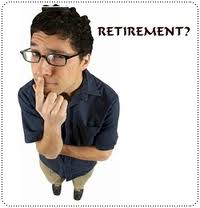I recently received a delightful letter from a college student who wanted my advice about investing for retirement. I say delightful because I simply don’t get many money management for college students requests, especially about retirement planning.
In formulating my response, I made a couple of assumptions:
1. He either has debt (college or car) or needs his income to avoid such debt.
2. He does not have an emergency fund in place.
Read on for his letter and my response.
Letter from Chris
Hi,
My name is Chris _____________. I am getting in touch because I have read a couple of your articles and I thought it would be a good idea to see if you would be able to offer me any financial advice. I am currently 21 and will be entering my fourth year in college. However I transferred into the program that I am in so I still have about two more years to complete. I have been talking with my mother about what I can be doing now to start saving money for retirement. I recently had the opportunity to invest in a 401k with my work, however it is only a part time job and I don’t know how much longer I will be here. I was also thinking about investing in an IRA. It is difficult because I don’t know what I want to do after I graduate or where I want to be geographically. If possible I would greatly appreciate it if you could give me any information or help. Thank You.
My Reply
Dear Chris,
I am very excited to hear from a college student who is thinking about how to invest for retirement. You are a rarity in today’s world! You may be surprised at my answer, but I would rather see you save your money right now instead of investing for retirement. The reason is simple: you will probably need the money, and if you have it tied up in retirement investments, you may be forced to borrow money for such things as:
· Making it through college.
· Buying or repairing a car.
· Paying for a place to live while you are looking for work after college.
Avoiding debt and paying cash as you go is a lifetime habit that will serve you well for years to come. It wouldn’t make sense today to be borrowing money while investing for retirement…sort of like taking out a loan so you can invest…not smart.
Once you finish college and get situated, I recommend paying off any outstanding debt and building up a good emergency fund before investing for retirement. You will be more relaxed, and, with no debt, you will have a lot more money to invest at that time.
Once you start investing for retirement, I like taking advantage of your 401k up to the point your employer matches. If he matches 3%, for example, I would invest 3% in order to get that “free money”. Investments above that 3% should be in Roth IRAs. You will have to pay your taxes on those investments now, but all growth in the Roth IRA is tax free. That is a good thing when you get ready to retire! Your goal should be to invest 15% of your income for retirement. If you do that, you will be fine.
If you want some good reading, you can go to my blog and read my posts on Dave Ramsey’s 7 Baby Steps. They will explain in more detail exactly when and why you do what you should with your finances. There are 7 articles in the series; the first is Dave Ramsey’s Baby Step 1: Baby Emergency Fund and there is a link at the end of each to the next in the series.
You may also want to read Dave Ramsey’s book, “The Total Money Makeover”. It is the best selling book on personal finance on the market, and a great read. In fact, I would be glad to give you a copy if you promise to read it. Just let me know.
Again, I am very impressed to hear from you. Please write back with any Roth IRA questions — or any other questions you have about my response…and about getting a free copy of The Total Money Makeover.
If you keep asking these great questions, you are going to do well in life.
Joe Plemon
Like I said, this was a delightful letter. It made my day and once again affirmed that at least some of our current generation is thinking about the future. I wish I could be around when Chris is ready to retire…my guess is that he will be well prepared.
Readers: What did you think of my advice? What would you have said differently? How old were you when you first started thinking about your own retirement?

Leave a Reply